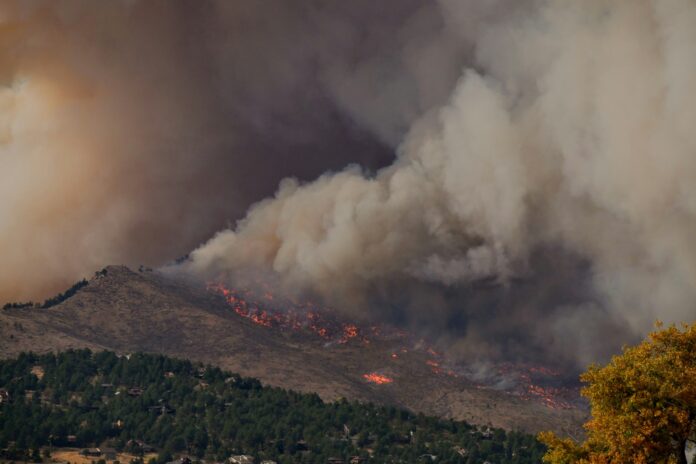Authorities in Alberta, Canada, issue urgent evacuation orders as a large wildfire approaches Fort McMurray, intensifying concerns over climate impacts on the region
A significant wildfire is currently advancing towards Fort McMurray, Alberta, prompting authorities to issue evacuation orders for several neighbourhoods in this key area of Canada’s oil sands production. The Regional Municipality of Wood Buffalo announced the evacuation on Tuesday afternoon, giving residents of Abasand, Beacon Hill, Prairie Creek, and Grayling Terrace neighbourhoods a brief window to leave their homes to avoid the imminent fire threat.
Located approximately 430 kilometres northeast of Edmonton, Fort McMurray is no stranger to the devastating impact of wildfires, having experienced a significant blaze in 2016 that led to massive evacuations and destruction. The current wildfire, identified as MWF107, has rapidly expanded to 9,602 hectares and remains uncontrolled, posing a severe risk to the region.
Visibility issues caused by smoke have complicated efforts to combat the fire, which is being fueled by winds from the southwest. Emergency services stressed that evacuating the area would enable a more effective response to the blaze, potentially saving lives and properties. The fire’s proximity to critical oil sand operations adds an additional layer of urgency to the firefighting efforts.
As Canada faces an increase in wildfire activity, largely attributed to the climate crisis, the situation in Fort McMurray serves as a stark reminder of the escalating risks. The 2023 fire season was the most intense on record, with fires causing significant displacement and damage across various provinces and territories.
Analysis:
Political Perspective:
This wildfire challenges local and federal authorities to address the immediate crisis while also navigating the broader political implications of environmental policies and climate change management. The government’s response to these recurring disasters is under scrutiny, with policy decisions and resource allocations playing a critical role in both short-term firefighting efforts and long-term environmental strategies.
Sociological Perspective:
For the residents of Fort McMurray, the recurring threat of wildfires is becoming a distressing part of life, impacting community stability and mental health. The trauma of repeated evacuations and losses can lead to long-term psychological and social issues, emphasizing the need for robust support systems for affected populations.
Economical Perspective:
Wildfires near key economic zones like the Alberta oil sands represent not just a physical threat but also pose significant economic risks. Disruptions in oil production can have ripple effects on the Canadian economy and global oil markets, highlighting the interconnectedness of environmental events and economic stability.
Local Perspective:
For the local communities, the immediate focus is on safety and the effective execution of evacuation plans. Community cohesion and local emergency responses become crucial in such times, showcasing the resilience and preparedness of the municipalities involved.
